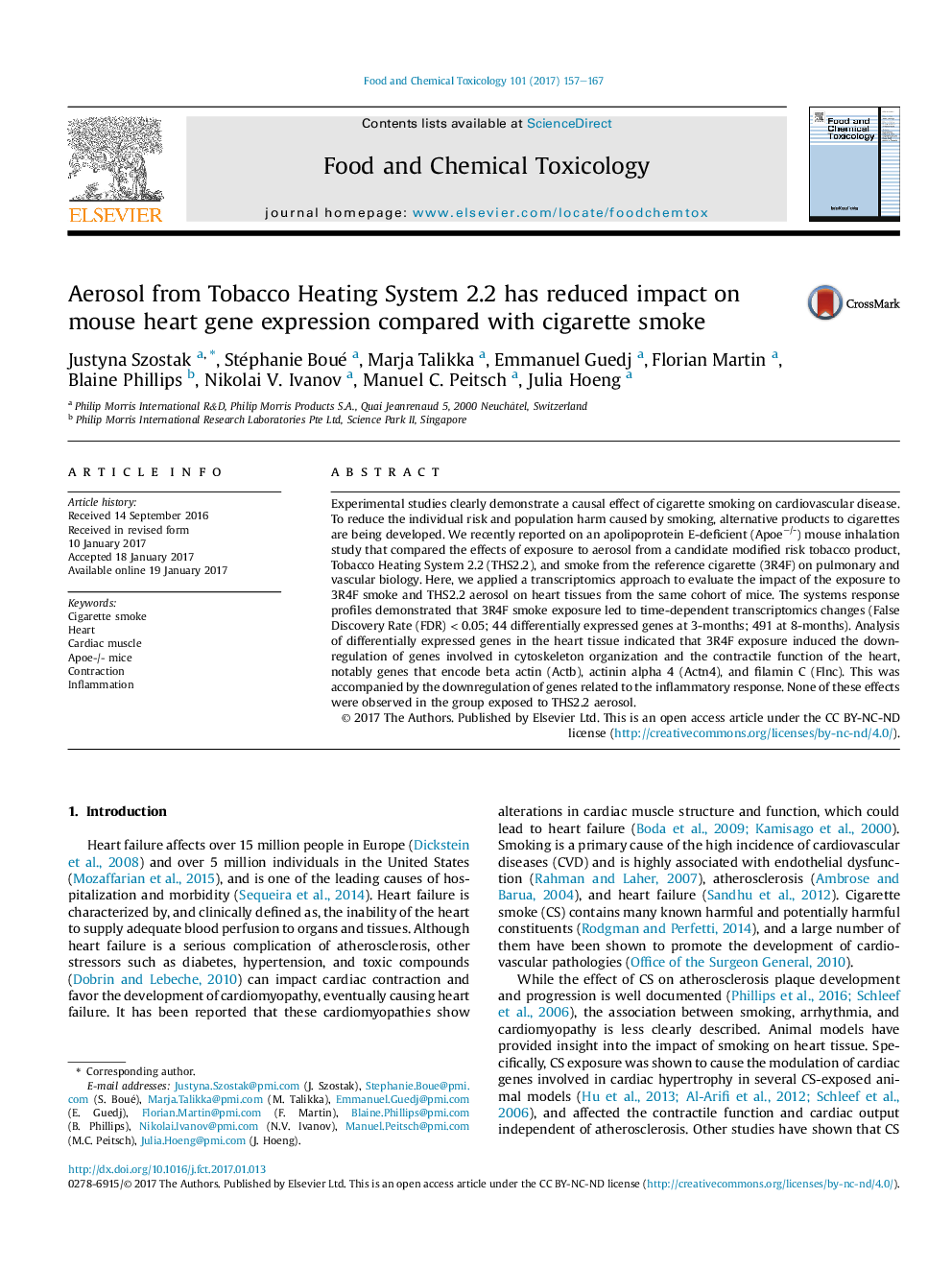| Article ID | Journal | Published Year | Pages | File Type |
|---|---|---|---|---|
| 5560393 | Food and Chemical Toxicology | 2017 | 11 Pages |
â¢Reduced impact of a candidate modified risk tobacco product, compared with smoke, on mouse heart gene expression.â¢3R4F exposure induced the downregulation of genes involved in cytoskeleton organization and the contractile function of the heart.â¢3R4F exposure induced the downregulation of genes related to the inflammatory response.
Experimental studies clearly demonstrate a causal effect of cigarette smoking on cardiovascular disease. To reduce the individual risk and population harm caused by smoking, alternative products to cigarettes are being developed. We recently reported on an apolipoprotein E-deficient (Apoeâ/-) mouse inhalation study that compared the effects of exposure to aerosol from a candidate modified risk tobacco product, Tobacco Heating System 2.2 (THS2.2), and smoke from the reference cigarette (3R4F) on pulmonary and vascular biology. Here, we applied a transcriptomics approach to evaluate the impact of the exposure to 3R4F smoke and THS2.2 aerosol on heart tissues from the same cohort of mice. The systems response profiles demonstrated that 3R4F smoke exposure led to time-dependent transcriptomics changes (False Discovery Rate (FDR)Â <Â 0.05; 44 differentially expressed genes at 3-months; 491Â at 8-months). Analysis of differentially expressed genes in the heart tissue indicated that 3R4F exposure induced the downregulation of genes involved in cytoskeleton organization and the contractile function of the heart, notably genes that encode beta actin (Actb), actinin alpha 4 (Actn4), and filamin C (Flnc). This was accompanied by the downregulation of genes related to the inflammatory response. None of these effects were observed in the group exposed to THS2.2 aerosol.
